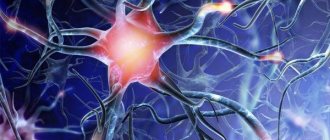One of the most interesting and mysterious areas of our psyche is the world of emotions. Studied for thousands of years by scientists from various fields of knowledge, it still keeps many of its secrets and mysteries. Emotions permeate our entire life, making it bright, rich, sometimes tremulous and tender, sometimes filled with unbearable burning pain. Yes, they are this life itself, because where feelings disappear, human existence ends.
It is psychology that most fully reveals the essence of this area of the human psyche - the only science that has managed to organically link together the physiological basis and manifestations of emotional states.
Emotions. What it is?
In psychology, emotions are characterized as a mental process of medium duration, which conveys a subjective evaluative attitude towards existing or possible situations.
Only a developed personality with a strong character and powerful motivation is able to control his emotions, correctly express and understand his feelings.
Do you think that emotions are a “medium-duration process”?
Not always. If it's on average, yes. For example, I can be angry for a short time, but love for a very long time. Fair? Yes.
20%
Absolutely. Especially in our time, when any emotion is more often fake than sincere. I think that all emotions are moderately fake and moderately long-lasting.
20%
Don't think. My emotions grip me very strongly, I cannot get rid of some for weeks and even months.
60%
Voted: 5
Types of emotions
Emotions are psychological states that are characterized by experiences and sensations of different nature and express a person’s satisfaction or dissatisfaction.
The main types of emotional experiences include:
- affects;
- mood;
- feelings;
- emotions.
Affects are emotional outbursts that occur with particular intensity and are short in time. These include: rage, intense joy, deep grief, despair, horror. This is the most powerful type of psychological experience.
A feature of the affective state is the individual’s loss of a sense of reality; he moves erratically and uncontrollably. In this state, people may lose the ability to speak and become numb. Having become, for example, participants in natural disasters or catastrophes, they become “petrified” in an affective state and do not move, sometimes they can run randomly and aimlessly to sometimes even dangerous places.
In affect, attention is concentrated only on those stimuli that are directly related to the experience, all others remain unattended.
In a state of passion, some people can control their actions and organize their thoughts. These are emotionally stable individuals, with highly developed volitional characteristics, inherent at the genetic level or resulting from upbringing.
Have you encountered a state of passion?
I myself (myself) are one continuous affect. Alas and ah, but I even like it.
20%
I often encounter this situation. The emotions that provoke it can vary from rage to joy.
20%
No, I am a rational person who does not give in to any outbursts.
60%
Voted: 5
Mood is one of the most long-lasting emotions that influence actions and actions in general. A person’s mood conveys an unconscious collective assessment of the events happening to him in the present.
The peculiarity of mood is that its reasons are not always clear and obvious both to the individual himself and to his environment. Each of us has probably heard about causeless joy or unaccountable sadness.
However, the cause of mood is present in all cases: human activity, the environment and people encountered along the way, events occurring in the past or present. It sometimes becomes a characteristic feature of an individual.
The importance of a person’s mood for his normal life is difficult to overestimate. A good mood significantly improves the efficiency of his life and even the most difficult task or problem seems feasible, and sometimes even trivial. In a bad mood, work seems difficult and impossible, it becomes a burden.
A person’s mood is greatly influenced by his personal self-esteem and the degree of his demands. Individuals with high self-esteem are more often characterized by high mood and ease of communication, while people with low self-esteem tend to be in a bad mood, have a pessimistic attitude towards life and the development of any events.
Such a state leads to apathy and a decrease in a person’s ambitions, demands and aspirations.
How often does your mood change?
Every 5 minutes. In this regard, I am impermanence itself. I can laugh loudly and rejoice, and then start crying a minute later.
20%
Oh... Very rare. If some emotion takes hold of me, it lasts for a long time. Relatively, of course.
20%
In general it is stable, but some factors, events or reasons can throw me out of the rut of a particular mood.
60%
Voted: 5
Feelings are the most enduring of psychological states. They have specificity, objectivity and vague external signs. Feelings allow you to form an attitude towards a stimulus. They need an object. A person cannot experience love without its object.
Feelings have enormous weight in all spheres of human life, they contribute to the formation of the motivation of an individual who strives for things and people that evoke positive feelings in her: she is looking for a job she likes, the most comfortable living conditions.
Feelings are individual, and what one person is delighted with may cause diametrically opposed feelings in another. It all depends on the value system of the individual.
The highest feelings that determine the versatility of a person’s inner world and the authenticity of human relationships require special attention.
There are high feelings:
- moral, which depend on traditions, ideology, religious trends, norms and rules of behavior developed by the society where the individual exists.
- intellectual, i.e. generated by human mental abilities. Examples of such feelings are curiosity, distrust of the correctness of the chosen decision, and surprise.
- aesthetic, determining the individual’s attitude to art and the surrounding nature. They express admiration and enthusiasm for fiction, paintings, music and other forms of art. Sometimes these are opposite feelings - melancholy, suffering, sadness.
The division of feelings into types is arbitrary. As a rule, a person’s feelings are multifaceted and have several components. Therefore, it is difficult to assign them to only one of the species.
List of moral, intellectual, aesthetic feelings
To the question: “what are the feelings,” each person can give his own answer. Some people often experience strong and deep experiences, while others experience them mildly and short-lived. The ability to feel depends on the temperament, character, principles, priorities and life experience of the individual.
Most often, feelings are classified depending on the sphere in which the object of experience is located:
Moral
These are sympathy and antipathy, respect and contempt, affection and alienation, love and hatred, as well as feelings of gratitude, collectivism, friendship and conscience. They arise in relation to the actions of other people or their own.
They are determined by the moral norms accepted in society and acquired by the individual in the process of socialization, as well as his views, beliefs, and worldview. If other people's or one's own actions correspond to moral standards, satisfaction arises; if not, indignation arises.
Intelligent
A person also has experiences that arise in the process of mental activity or in connection with its result: joy, satisfaction from the process and result of work, discovery, invention. It is also inspiration and bitterness from failure.
Aesthetic
Emotional excitement arises when perceiving or creating something beautiful. A person experiences incredible sensations when he sees the beauty of the Earth or the power of natural phenomena.
A person feels a sense of beauty when looking at a small child or an adult, harmoniously built person. Beautiful works of art and other human creations can evoke delight and elation.
Since this classification does not reveal the entire palette of feelings, they are usually classified on several other grounds.
Definition of emotions
People often pay attention to each other's emotions and behavior. An individual's facial expressions and gestures can tell a lot about the emotions that he experiences.
Emotions are long-term states, reactions to events occurring in the present or past. Emotions can be positive and negative.
Positive emotions
They, like nothing, affect people’s well-being. Experts have long confirmed that feelings of joy, happiness, and optimism can lead a person to a healthy life.
Positive types of emotions include:
- Interest-excitement – motivates to learn, improve skills and abilities, and creativity. With this emotion, curiosity and passion increase;
- Joy is associated with the satisfaction of especially important life needs;
- Happiness - experiencing it, a person feels bliss, pleasure, love;
- Gratitude is a feeling of psychological comfort associated with a feeling of appreciation and recognition for the kindness provided.
Negative emotions
They can have a negative impact on human health and even play a decisive role in the formation of personality. By the way, affects also refer to negative emotions.
Negative types include:
- Suffering - manifests itself when a person receives information about the impossibility of fulfilling the individual’s most important life needs;
- Anger is associated with situations in which a person encounters unexpected obstacles to satisfying vital needs that are important to a person;
- Disgust - occurs when confronted with people or objects that come into confrontation with the principles of the individual.
- Contempt - manifests itself in relationships with people of different life positions, behavior, and views.
- Fear is associated with the individual receiving information about possible danger.
- Shame - manifests itself in the understanding of the discrepancy between one’s own actions, thoughts and appearance and one’s own expectations and the expectations of others.
- Guilt - occurs when there are violations of a moral, ethical or religious nature, when the individual feels personal responsibility.
Neutral emotions
Surprise is the only state that does not reveal a clearly defined positive or negative character in relation to a suddenly arising situation.
Differences between emotions and feelings
To control and manage your emotional and sensory area of life, you need to learn to distinguish between emotions and feelings. To do this, let us highlight the main differences between these concepts:
- Emotions are a reaction, and feelings are a state.
- Feelings are associated with conscious actions and conscious manifestations. They have a more substantive and specific expression and depend on the social sphere in the activity and life of the individual;
- Time of occurrence of an emotional state: emotions represent an individual’s immediate reaction to the subject of irritation, his satisfaction or dissatisfaction with external conditions. Feelings are more long-lasting.
- We have the opportunity to observe emotions from the outside, feelings flow inside. For example, such a negative emotion as fear can be easily identified by a facial expression frozen in horror, screaming, or body movements of a person, while the feeling of fear has no external signs, it lurks deep inside and does not manifest itself in any way.
- Emotions lead to changes in mood, sometimes even deep depression, and feelings lead to changes in sensations. If we consider the emotion of thoughtfulness, we first see a frozen, thoughtful expression on the face. When a momentary emotional outburst passes, one can observe a good or bad mood and subsequent positive or negative actions.
Do you experience positive or negative emotions more often?
I often experience mixed emotions. They can quickly replace one another. I can't control this.
40%
More often I experience positive emotions.
0%
More often I experience negative emotions.
40%
Both of them, in my case, are in approximately equal positions in terms of the time of “influence” on me.
20%
Voted: 5
Patterns
Both mental processes are subject to certain laws. So, feelings are characterized by:
- Generality . By experiencing a certain character of feelings towards an object, one can transfer a similar attitude to all homogeneous objects. For example, love for one's domestic cat can transform into love for all cats.
- Dullness . This means gradual fading, loss of intensity. This effect is especially clear when considering love relationships. Even the most intense love turns into a calmer direction over time.
- Mutual influence . In a situation of observing different actions or phenomena, a more pronounced perception of one ongoing event against the background of another event is possible. Thus, the betrayal of one friend in a critical situation is perceived especially negatively against the background of the nobility shown by another friend.
- Summation .
Feelings experienced throughout life can add up. For example, pleasure from professional fulfillment may constantly increase as a result of new achievements and successes. Or constant failures in your personal life can ultimately lead to a state of depression.
Patterns of emotions:
- Substitutability . Failure in one matter may be followed by success in another, and the sadness experienced in the first case develops into joy.
- Switchability . Dissatisfaction with one object or phenomenon switches to other objects or phenomena. Thus, a woman dissatisfied with her husband’s behavior can take out her negative attitude on her children.
- Incompatibility . Incompatible emotions filling a person can lead to serious intrapersonal conflicts. For example, a wife who loves her husband and who is periodically beaten may simultaneously experience affection and hatred for her husband. As a rule, in such a conflict of feelings one wins, and the second is repressed.
Functions of emotions
Charles Darwin spoke about biological expediency. The most common psychological functions found in psychological literature are:
- evaluation function , which allows you to instantly evaluate a stimulus or situation and direct information in a certain direction. This is called the first impression. If a person makes a favorable impression from the very beginning, then the attitude towards him and communication develops in a positive way. It is very difficult to change your perception of yourself after the first unpleasant effect;
- function of compensating for information deficit . Sometimes a person does not have enough information to make a rational decision. And then emotions come to the rescue, making up for this deficiency and making it possible to predict the situation;
- The mobilization function forces the human body to focus on overcoming a stressful situation. This happens at the physiological level, when adrenaline during the emotion of fear makes a person run at an unusual speed. Moreover, this is by no means cowardice, but “narrowing of consciousness” - that’s what this phenomenon is called;
- trace formation function , in which an emotion appears after an irritating event has happened, and it is too late to act. It is then that a wary attitude towards similar situations arises, a person receives some kind of warning;
- communication function , when people seem to “try on” the emotions experienced by another person. This is explained by the fact that the mechanisms for realizing basic emotions are given to us from birth, so we empathize with a person with a grimace of pain on his face;
- disorganization function , when strong emotions work against us, they disrupt the individual's effectiveness and lead to a state of distress. Distress provokes behavior disorder and depresses human health.
Why does a person experience emotions?
The main reason why people have emotions is that they help build relationships and connect them with each other. It would be difficult for people to properly coordinate their goals if they did not love, fear, trust, and have a sense of pride.
People are predisposed to experience certain feelings that are necessary not only for survival and relationship building, but also for everyday life. Without emotions they would live like robots. Work would be monotonous, like all of life. Emotions color our world.
comparison table
The main characteristics can be clearly and briefly described in the following table:
| Emotions | Feelings |
| Primary | Secondary |
| Short term | Long lasting |
| Related to the situation | Related to object |
| Manifested by bodily reactions | Cannot be physically demonstrated |
| Unconscious | Conscious |
| You can't experience more than one at the same time | Only one sense is available at a time |
To separate these important concepts, it is important to be able to analyze the manifestations of feelings and emotions.
How to express your emotions correctly?
The question of how to learn to express your emotions is very important. Emotions are a type of energy that accumulates inside us. The accumulation of this energy leads to emotional tension and ultimately an emotional-bodily block. Over time, consequences such as problems with the nervous system and general health may occur.
For example, aggression and internal anger can reach such a peak that a person becomes dangerous. These are the situations in which you need to understand how to express negative emotions. If you manage to recognize such an emotional state in yourself, there are several ways to cope with it:
- Calm down and slowly count to 100. As a rule, after this half of what you want to do seems somehow unthinkable and unhealthy. This method will help you avoid unpleasant situations and learn to react more calmly to difficult situations, as well as show emotions more correctly;
- Share your emotions with other people. Tell them that you are sad or have problems. During the conversation, relief will definitely come;
- Allow yourself to cry, even in front of the mirror. Tears help relieve internal and emotional stress. They also show others that you are in pain;
- Dancing or singing is a great way to release pent-up emotions. You can sing and dance in a group or alone.
Have you ever felt irritated by what other people are experiencing?
Yes. I am often irritated by other people's emotions, especially by other people's attempts to express them.
0%
Yes, but this happens rarely. Mainly when it comes to uncontrolled display of bad or good mood.
100%
No, it doesn't bother me at all.
0%
No, I am calm about the expression of feelings by others, sometimes with approval.
0%
Voted: 4
Are there any similarities?
The similarities between both types of manifestations are the following:
- They relate to experiences associated with a specific occasion or its absence.
- Directly associated with a specific mood or state.
- They have specific characteristics: beginning, duration, stages of formation and development, manifestations and logical conclusion.
- They are expressed in psychosomatic manifestations.
Because feelings are formed based on long-term and often repeated emotions, it can sometimes be difficult to distinguish them from each other.
How to learn to control your emotions?
You can find a sufficient amount of information on this topic in books on psychology and on the Internet. The most effective techniques include:
Rule #1 . Change your attitude towards emotions.
This is your condition, accept it with love. It is completely normal that you are experiencing them. In addition, you simply need them, this is scientifically proven. No matter what their character is, positive or negative, do not hold them unless the situation, the rules of society and the environment at the moment require it.
Rule #2. Try to experience your emotions to the maximum.
Even if there is a hurricane of emotions inside you, the only reason for holding them back can be an inappropriate environment. To throw out, for example, your rage and indignation at some kind of injustice that brings you to this state, just find a place where you can retire and no one can disturb you. Let it be, for example, your car.
Talk through everything that worries you, shout, free yourself from what you have accumulated, you can even cry - this is very effective.
In other words, just embrace your emotion as much as possible and “wave your hand at it.” You will certainly feel relief and return to a calm, objective assessment of the problem in order to effectively solve it. It is even possible that after such a release it will seem trivial to you and not requiring attention.
Rule #3. Develop your ability to recognize and manage your emotions.
When emotions overwhelm you again, try to understand what they express, which one you are experiencing, give it a specific name. Try to feel the full spectrum of what you are experiencing. Observe your reactions to this emotion. Perhaps the range of what you experience with it will expand each time.
If you do this kind of work constantly, over time you will begin to notice that your emotional perception has acquired a deeper and more acute character, and you will begin to experience subtle feelings. Your music will be more beautiful, your films will be more profound, your works of art will be more magnificent.
Rule #4. Sometimes swear, but in a good way.
The technique is simple. Each of us has encountered in life such people whom we want not only to scold, but simply to destroy. If your patience is full and you are ready to explode, just step aside and try to calm down. There is no need to avoid conflict or push your emotions deep inside. Just return to the dialogue later and sort out your complaints with your opponent.
Bottom line
Emotions are components of feelings. They last less time, but, accumulating, lead to the formation of stable feelings. A person’s life without these sensations is poor and meager, so it is important to develop the full range of feelings and emotions available to a person. The more there are and the more diverse they are, the richer the inner life of a person. However, it is better not to give free rein to some negative manifestations, otherwise they can ruin the life of the person himself, his family and friends, and those around him.











